The Barnstable Patriot
Posted Nov 29, 2018 at 5:20 PM
Updated Nov 30, 2018 at 11:59 AM
Health Board halts move to lift sewering cap

Town Manager Mark Ells has said it before, and he’ll say it again: Barnstable is one of the state’s most complex and environmentally sensitive communities.“We stand on top of the water we drink,” Ells told a packed Barnstable Board of Health meeting on Nov. 27. “Public water supply and water resource protection are a priority. Resource protection is a key part of everything that we do.”In a 45-minute presentation that opened the three-hour hearing, Ells said his administration is trying to balance housing demand, drive economic development, and maintain resource protection while expanding the the Highway Business District along Route 28 in Centerville and Hyannis. The zoning changes were introduced earlier this month by James Crocker Jr., council vice president and chairman of the town’s Zoning and Permitting Regulatory Committee.“We don’t have blinders on,” Ells said. “We need to look at this balance, we need to understand this balance. It isn’t just sewering. As town manager, l will not be successful unless I look at every single option.”
Residents weighed in on a proposal to modify the town’s Saltwater Estuary Protection Zone, an interim regulation that’s been in place for a decade. The modification was introduced as part of the Route 28 highway business district expansion. Ultimately, the health board put the debate on hold until January.
Chairman Paul Canniff opened Tuesday’s hearing by quoting his predecessor, Wayne Miller, candidly stating that Barnstable’s watersheds and estuaries are nitrogen-impaired. Lifting the interim regulation, Miller said, would result in septic systems that far exceed the maximum nitrogen flow.
“Nutrient load is introduced primarily by us – urine,” Ells explained. “That’s really what we’re looking to manage here. It’s all about balance.”
Ells advocated easing the estuary protection regulations along a 500-foot buffer of Route 28. He said doing so would encourage redevelopment of the aging commercial corridor and, perhaps, allow housing construction at the former Marstons Mills Elementary School.
“On the nontraditional side, we’ve been doing a lot” to implement alternative water treatment technologies, Ells said.
Alternative water treatment efforts are a long-term project, noted health board member Tom Lee, who recommended against relaxing the interim regulations before examining water quality data at each watershed.
“We cannot just say ’500 feet’ across the board,” Lee said. “That’s my opinion as an engineer.”
Health board member Don Guadagnoli concurred with Lee, saying that the interim regulations should be modified slowly and thoughtfully, and affordable housing should be considered on a case-by-case-basis.
Marcel Poyant, owner of Centerville Shopping Center on Route 28, urged the board to provide commercial developers with some type of regulatory relief; otherwise, redevelopment efforts along the aging commercial corridor are “dead in the water.”
It’s difficult enough to keep commercial property occupied, echoed Cliff Carroll, a mortgage banker and real estate developer and Housing Assistance Corp. board member. “The need for affordable housing here has exploded. We really do need to address that. If we study, study, study, study, we’re going to be here 10 years from now having this conversation.”
Zenas Crocker, executive director of Barnstable Clean Water Coalition, said BCWA and its predecessor, Three Bays, have been studying the region’s water quality for more the 20 years and continues to do so.
“We’re working very, very hard, hand in hand, with the town to bring these alternatives to bear,” Crocker said. “We don’t know exactly where and how the changes are going to help. Dilution alone is not going to solve the long-term problem. We think we can do that over time. Let’s not rush to lift something like this. It does protect us.”
Councilors Jessica Rapp Grassetti and Britt Beedenbender also testified against lifting the saltwater estuary regulations and called for a review process, water quality monitoring, and benchmarks for moving forward.
“This is a short-signted attempt to address a problem with the wrong solution,” Beedenbender said. “Lifting of this regulation would have far-reaching, negative effects. The health of our waters directly affects the health of the community.”
Likewise, Lindsey Counsell, who chairs Barnstable Preservation Committee, urged continual water quality monitoring.
“You really need to get into the parcel level to be able to prove you’re making a difference,” Counsell said. “Help the town implement a monitoring plan…so you can then begin to chart the progress,” he urged the board of health.
Don Keeran, assistant director of the Association to Preserve Cape Cod, said his organization and BCWA share the same mantra: No net increase in nitrogen load.
“That’s our mantra, and we hope that’s the philosophy of the board of health going forward here. It’s not just a town issue. It does have those ramifications beyond town borders” for shared estuaries in Mashpee, Sandwich, and Yarmouth as well.
“We would caution and urge the board to be very careful of any potential modifications of the regulation,” Keeran said. “Any lifting of the ban we would be opposed to and we would urge the board of health to not go that route.”
The public hearing is scheduled to continue on Tuesday, Jan. 22. The health board’s next regularly scheduled meeting is on Tuesday, Dec. 18.
The Barnstable Patriot – Health Board halts move to lift sewering cap
